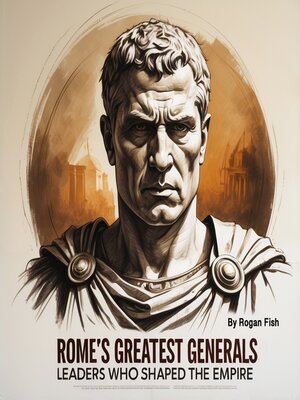
Sign up to save your library
With an OverDrive account, you can save your favorite libraries for at-a-glance information about availability. Find out more about OverDrive accounts.
Find this title in Libby, the library reading app by OverDrive.



Search for a digital library with this title
Title found at these libraries:
| Library Name | Distance |
|---|---|
| Loading... |
The rise of the Roman general was a gradual yet transformative process that shaped the very foundation of Rome's military might. In the early days of the Roman Republic, military leadership was closely intertwined with social status and political influence. Unlike later periods where generals held almost absolute power, early Roman commanders were often aristocrats or elected officials whose primary duties lay not only in warfare but also in governance and civil administration.
One of the pivotal aspects that shaped the rise of the Roman general was the evolution of military traditions. Initially, Rome's military structure was heavily influenced by the Etruscans and other neighboring cultures. Early Roman armies were comprised of citizen-soldiers who fought primarily to protect their homeland rather than for conquest. Generals were typically chosen from the patrician class, and their leadership was seen as both a duty and an honor. As Rome expanded, the need for a more organized and strategic military became apparent, leading to the emergence of commanders who were not just noblemen but skilled tacticians.
The social and political influences on the role of the general were significant. During the Republic, the Senate played a crucial role in appointing generals, often selecting consuls or appointed military tribunes. These leaders were expected to exemplify Roman virtues such as bravery, discipline, and piety. The successes of early generals not only brought personal glory but also bolstered their political careers. Victorious commanders could parlay their military achievements into political power, as evidenced by figures like Scipio Africanus, who leveraged his triumphs against Carthage to gain influence within the Senate.







